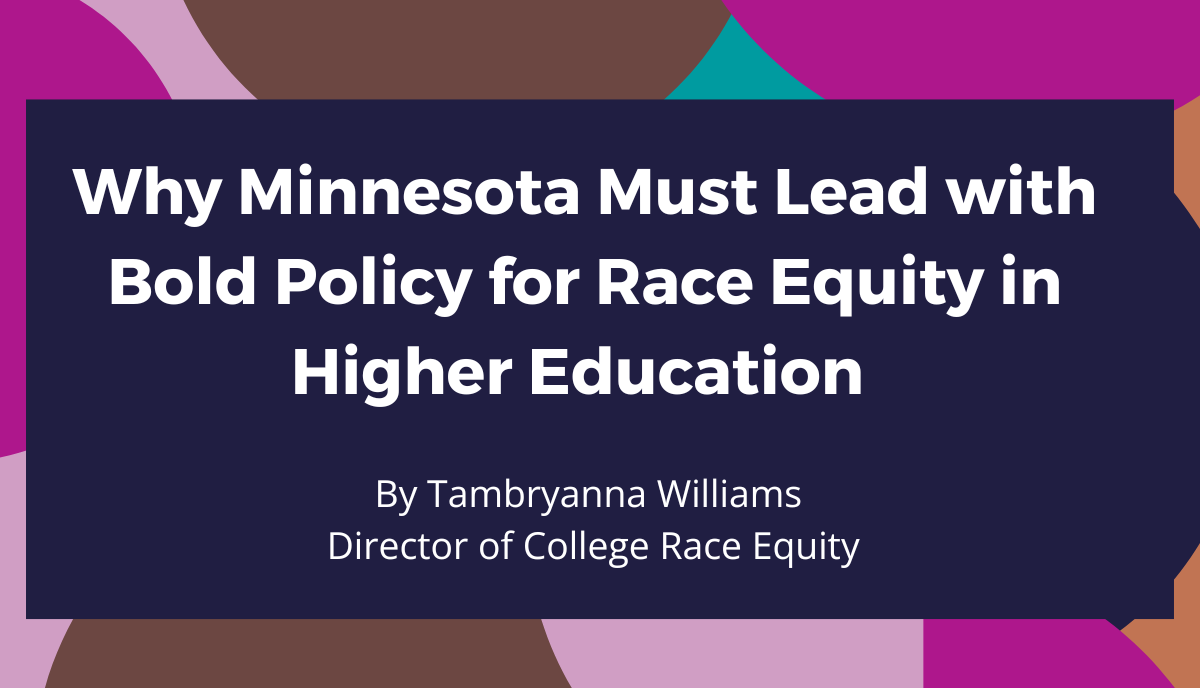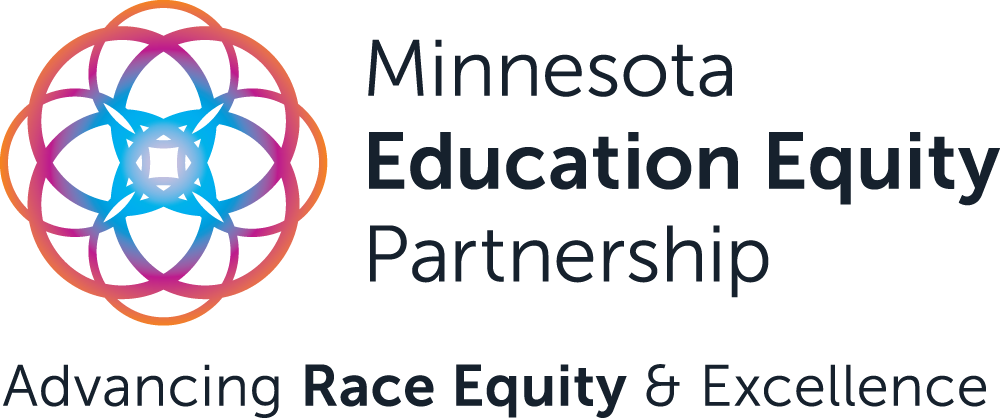
Making College Work for Everyone: Why Attainment Goals and Financial Aid Must Be Priorities
By Tambryanna Williams
Director of College Race Equity
Ensuring racial equity in higher education requires bold policy changes that address both systemic barriers to degree attainment and the financial challenges faced by students who are historically marginalized.
Minnesota House Bill HF 2090 takes a critical step toward this goal by updating the state’s higher education attainment goals and expanding financial aid opportunities for People of Color and Indigenous students (POCI) and low-income students.
Revising Attainment Goals to Address Racial Gaps
In 2015, the Minnesota Legislature established a higher education attainment goal, aiming for 70% of residents aged 25 to 44 to hold postsecondary degrees or certificates by 2025.
While progress has been made, racial disparities in college enrollment, retention, and completion persist.
HF 2090 proposes a comprehensive review and revision of the state’s higher-ed attainment goals, ensuring they reflect not just outcomes, but the real barriers students face—particularly POCI students and those from low-income backgrounds.
The bill also calls for aligning state policy to better support students in achieving those goals, so they are more than just a benchmark—they become a realistic and equitable pathway to success.
A Community-Led Approach to Policy Reform
To lead this work, HF 2090 establishes a P-20 Education Partnership Working Group, tasked with grounding Minnesota’s revised attainment goals in both data and lived experience.
This group will:
-
Assess racial and economic disparities in college access and degree completion.
-
Recommend updated, equity-centered attainment goals.
- Ensure that goal-setting includes broad community and stakeholder engagement.
The working group is required to convene by August 15, 2025, and deliver final recommendations by January 15, 2026.
The group must represent a wide range of perspectives, including:
-
State higher education systems (Minnesota State, University of Minnesota, Office of Higher Ed)
-
Students and community voices, including those from the Tribal Nations Education Committee.
-
Equity-focused organizations, including MnEEP.
This ensures the working group is representative of Minnesota’s diverse student population, bringing together stakeholders from education, policy, and community sectors to create a meaningful, student-centered policy framework.
Expanding Financial Support to Ensure Student Success
Alongside attainment goal revisions, HF 2090 addresses financial barriers to higher education by enhancing student aid programs, particularly for low-income students and students of color. The bill proposes:
- State Grant Plus, an expansion of the Minnesota State Grant Program that provides additional financial support to students facing economic hardship.
- Increasing the state grant program’s default living and miscellaneous expenses allowance (LME), ensuring more students have the financial stability needed to persist and complete their degrees.
By supplementing existing state grants, these provisions reduce financial obstacles that disproportionately impact POCI and low-income students. This initiative aligns with MnEEP’s mission to advance racial equity in education and eliminate financial barriers to degree attainment.
A Commitment to Equity-Driven Policy Change
MnEEP remains committed to advocating for policies that prioritize racial equity in higher education, ensuring that every student has the opportunity to access, persist, and complete a college degree.
HF 2090 recognizes that equity in higher education requires infrastructure, investment, and inclusive leadership. By updating attainment goals, aligning supportive policies, and expanding financial aid, the bill presents a comprehensive, equity-driven roadmap for systemic change.
This legislation is a meaningful step toward a future where all Minnesota students have access to a higher education system designed for their success.
Check out the full testimony below to learn more.
